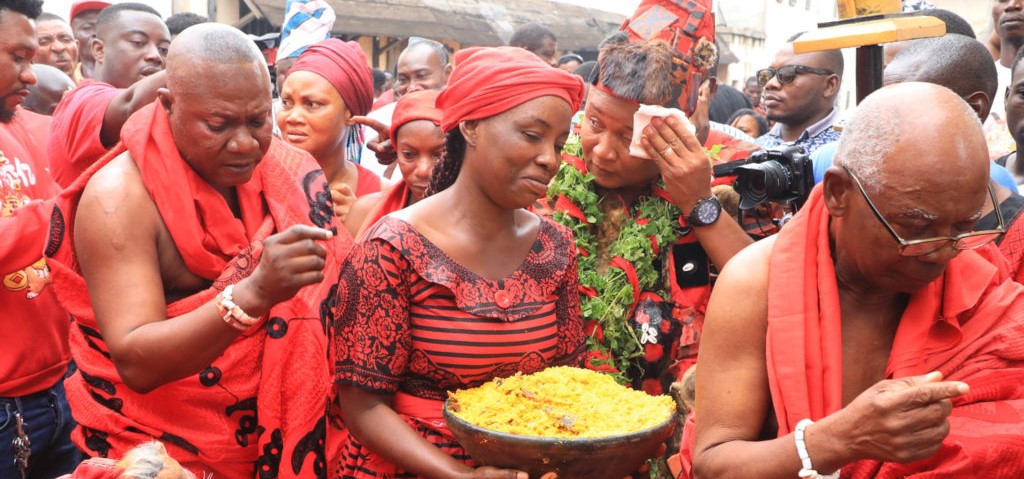Homowo Festival
Estimated reading time:

Ghana, with its rich cultural tapestry, boasts a multitude of festivals that reflect the diversity and traditions of its people. Among these celebrations, the Homowo Festival, observed by the Ga people primarily in the Greater Accra Region, stands out as a vibrant and symbolic event. Homowo, which translates to "Hooted at Hunger" or "Climbing over Hunger," is a festival deeply rooted in history and tradition, celebrating the triumph over a period of scarcity.
Historical Significance
Homowo has its origins in Ga folklore, recounting a time when the people experienced a severe famine. According to the legend, the Ga people migrated to the present-day Greater Accra Region and faced harsh conditions, leading to widespread hunger. After a period of hardship, the people successfully cultivated and harvested crops, marking the end of the famine. The Homowo Festival thus serves as a commemoration of this historic victory over scarcity and hunger.
Timing and Preparation
The Homowo Festival typically takes place between May and August, with the exact timing determined by the traditional calendar. The festival begins with the planting of crops, particularly maize and other staples. This act symbolizes the start of the agricultural season and the anticipation of a bountiful harvest.
Key Rituals and Customs
- Kpokpoi Preparation: Central to the Homowo celebrations is the preparation of a special dish called Kpokpoi. This dish is made from mashed corn and palm fruit and is symbolic of the struggles and eventual triumph over hunger. The preparation of Kpokpoi is often a communal activity, bringing families and communities together.
- Cleansing Rituals: Homowo involves various cleansing rituals, including the sprinkling of "Nmaa Daa" (a mixture of mashed yam and palm oil) by traditional priests. These rituals are believed to purify the community and bring good fortune for the upcoming harvest.
- Durbar of Chiefs: The festival culminates in a grand durbar of chiefs, where traditional leaders and elders dress in rich regalia and offer prayers for the well-being of the community. The durbar is also an opportunity for the Ga people to showcase their cultural heritage through dance, music, and vibrant displays.
- Street Processions and Dancing: Colorful street processions and traditional dances are integral parts of the Homowo Festival. Participants, adorned in traditional attire, move through the streets with rhythmic dance steps, drumming, and chanting, creating a lively and festive atmosphere.
- Homowo Soup and Feasting: Families and communities come together to share meals, including the symbolic Kpokpoi, accompanied by various soups and stews. The act of communal feasting fosters unity and reinforces the spirit of togetherness.
Cultural Significance
Homowo is more than a festival; it is a cultural expression that strengthens the bonds of the Ga people and serves as a reminder of their resilience in the face of adversity. The festival also attracts visitors and tourists who are eager to witness and partake in the vibrant traditions and celebrations.
Conclusion
The Homowo Festival in Ghana is a captivating celebration that blends history, tradition, and community spirit. As the Ga people come together to commemorate their triumph over hunger, the festival serves as a testament to the enduring cultural heritage and unity that defines the Ghanaian people. Homowo stands as a vibrant illustration of Ghana's commitment to preserving and celebrating its rich cultural diversity.
